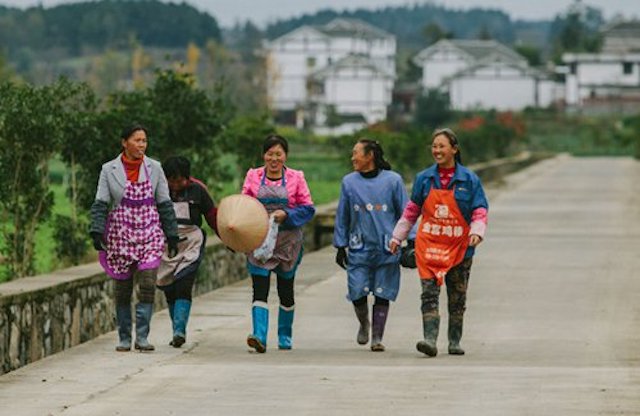Evergrande in Guizhou
 Over the course of 40 years, China pulled 700 million people out of poverty. Rural poverty “decreased from 55.75 million to 16.6 million” between 2015 and 2018. China had planned to completely end extreme poverty by 2020. The country’s agenda is one key driver; however, the effort from the rising private sectors has also been pivotal. China’s private companies have demonstrated innovative ways to tackle poverty-related issues. This article will introduce the case of one leading private company, Evergrande in Guizhou.
Over the course of 40 years, China pulled 700 million people out of poverty. Rural poverty “decreased from 55.75 million to 16.6 million” between 2015 and 2018. China had planned to completely end extreme poverty by 2020. The country’s agenda is one key driver; however, the effort from the rising private sectors has also been pivotal. China’s private companies have demonstrated innovative ways to tackle poverty-related issues. This article will introduce the case of one leading private company, Evergrande in Guizhou.
Private Investment
China has already had success with private companies working to eradicate poverty. E-commerce has been fiercely discussed on different stages both internationally and domestically for its role in poverty eradication. Alibaba has successfully exercised the strategy of promoting small business from remote and impoverished regions on its online platform to stimulate the commodity economy and end their poverty. In fact, Alibaba’s online sales platforms have helped more than 100 poor counties in China reach a sales record of $14 million in 2018.
In 2019, the United Nations Environment Program honored Ant Financial Services Group for its achievement in afforestation of 122 million trees in arid regions in China to improve their overall living conditions. This tech company also works to finance small businesses. Its Alipay platform provides online money transfer services, lending and investment funds.
Evergrande in Guizhou
However, differing from these online giants, Evergrande leads the real estate business in China. In 2018, the head of the company, Jiayin Xu, said the private sector should do more in poverty alleviation. In the same year, Evergrande won the trophy for its donation of $560 million, which also make them the number one organizational donor. That year, 68 percent of the money donated went towards poverty alleviation.
Absolute numbers of donations are not the only hallmark of Evergrande’s approaches in poverty alleviation. Evergrande has an obvious provincial focus on its poverty reduction projects. Evergrande started working in Guizhou, one of China’s more underdeveloped provinces, in 2015. According to the report, Bijie, Guizhou, received 51.9 percent of the total donation, which equals $302 million. In, Bijie, the number of people living in poverty has decreased by 5.94 million, dropping the poverty rate from 56 percent to 8.89 percent in the last 30 years.
Agricultural Reclamation
Besides the massive amount of financial input, the success that Evergrande in Guizhou has had in combating poverty demonstrates another key mark: a detailed and localized strategy. Evergrande’s research corroborates Guizhou’s traditional disadvantage in agricultural reclamation. Therefore, it developed various alternative measures.
Its plans were to develop Dafang County, Bijie City, Guizhou Province. The company had completed 103 projects targeted poverty by 2017. More than 180,000 local residents benefited from these projects. Through supply, production and sale integration, Evergrande helped Dafang county create 16,473 acres planting bases of economic fruits and 317 beef breeding farms. It also built 10,223 greenhouses and 22 cultivation centers.
China’s private companies have had impressive success in combating poverty. As a new player in the field, Evergrande in Guizhou demonstrated how a private company turns poverty alleviation into an economic opportunity for both local communities and companies. Indeed, the company has had a relatively short time in the field, but its role is no less critical than governmental help.
– Dingnan Zhang
Photo: Flickr
